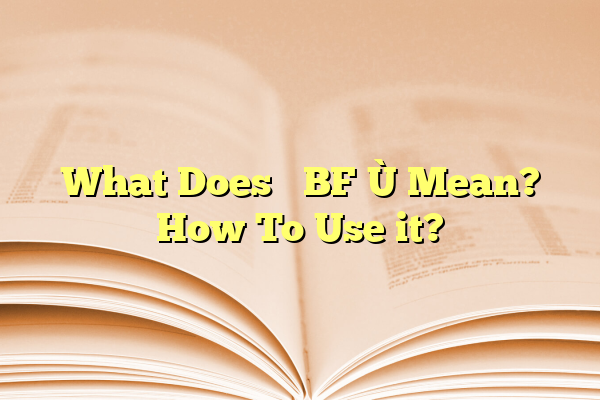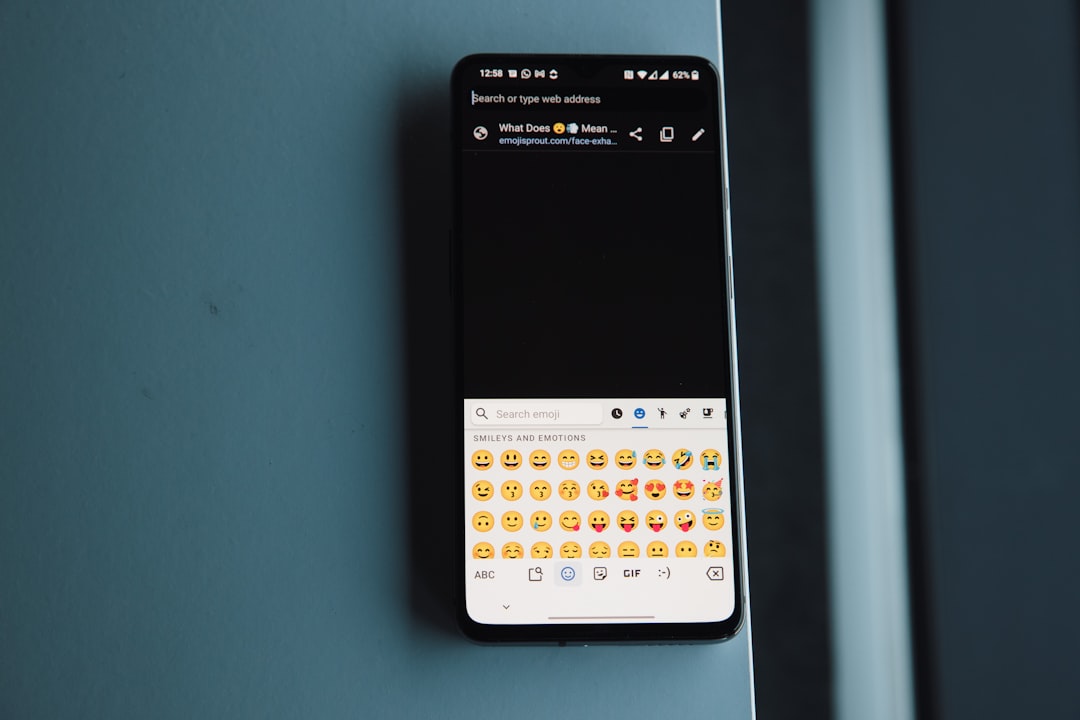
What Does “TBF” Mean? How To Use it?
In the ever-evolving world of digital communication, acronyms and slang abound to help people express themselves more succinctly. One such acronym that frequently appears in online conversations, emails, and text messages is TBF. If you’ve ever paused while reading a message containing this abbreviation, wondering what it means or how to use it properly, you’re not alone.
Contents
What Does TBF Mean?
TBF stands for “To Be Fair.” It’s commonly used in informal, conversational English to preface a statement meant to balance a discussion or provide a more objective viewpoint. It’s especially useful when someone wants to temper criticism or add an opposing perspective politely.
For example, if someone complains about a movie being boring, another person might respond, “TBF, it had some good performances.” In this usage, TBF serves to soften a harsh opinion and encourage a fair assessment of the situation.

Origin and Popularity
The acronym TBF has been around since the early days of internet messaging, but its usage has grown significantly with the rise of texting and social media. Abbreviations like TBF offer a quick and casual way to communicate, especially on platforms with character limits like Twitter or in fast-paced group chats.
You’ll likely come across TBF in forums, Reddit threads, messages, and even in informal workplace conversations. While it’s generally used in casual settings, it can occasionally appear in semi-formal email exchanges, depending on the familiarity between individuals.
How to Use TBF in Conversation
Understanding the appropriate context and tone is key to using TBF correctly. It usually precedes a remark that introduces a differing view or presents a more empathetic perspective. Think of it as a linguistic tool that adds balance to your argument or conversation.
Here are a few ways TBF can be used effectively:
- To introduce a contrasting opinion: “TBF, the weather was unusually bad, so they probably couldn’t make it on time.”
- To soften criticism: “TBF, she did warn us that it would be a complicated project.”
- In humorous self-awareness: “TBF, I did hit snooze like five times this morning.”
One thing to keep in mind: While TBF adds nuance to a conversation, overuse might come off as hedging or indecisiveness. Use it sparingly and where genuinely appropriate.

Alternatives to TBF
If you want to express a similar idea but avoid using abbreviations, there are other phrases that can substitute for TBF:
- “In all fairness”
- “To be honest” (though this has a slightly different connotation)
- “Admittedly”
- “You have to consider…”
These alternatives can be more suitable in formal writing or when you’re unsure if the recipient is familiar with internet lingo.
Should You Use TBF?
Whether or not to use TBF often depends on your audience. In casual texting between friends, it’s perfectly acceptable. However, if you’re emailing a client or writing in a professional capacity, it’s best to stick with the full phrase “to be fair” or opt for more formal terminology.
That said, internet slang is becoming more normalized in certain workplace cultures, particularly in tech-savvy environments. When in doubt, follow the tone and style already in use by your peers or colleagues.
Conclusion
TBF is a handy abbreviation that helps communicate fairness, balance, or self-awareness in conversations. As with any slang or abbreviation, context is king. Use it when the tone is informal, and don’t be afraid to spell it out in more formal situations. Understanding acronyms like TBF can not only enhance your digital communication but also help you interpret others’ messages more accurately.
FAQ: Understanding TBF
- Q: What does TBF stand for?
A: TBF stands for “To Be Fair.” - Q: Is TBF appropriate in professional writing?
A: Generally, it’s better to use the full phrase “to be fair” or similar expressions in professional or formal settings. - Q: Can TBF be used sarcastically?
A: Yes, like many phrases, TBF can be used humorously or sarcastically, depending on the tone and context. - Q: Where is TBF commonly used?
A: You’ll commonly see it in text messages, social media posts, Reddit comments, and casual conversations. - Q: What are some good alternatives to TBF?
A: Phrases like “In all fairness,” “Admittedly,” or “To be honest” may work well depending on the context.
